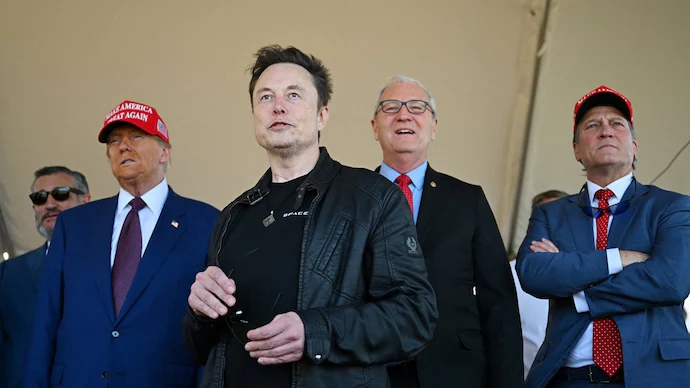CELEBRITY
Elon Musk has a plan to reach Mars in 90 days. It normally takes 8 months

Elon Musk has outlined ambitious plans for SpaceX’s Starship, aiming to significantly reduce travel time to Mars.
Traditionally, missions to the Red Planet have taken between six to nine months, but Musk asserts that with the right technology, this duration could be slashed to as little as 90 days.
The key to achieving this rapid transit lies in the spacecraft’s design and propulsion capabilities.
A fully loaded Starship is expected to reach a velocity of over 36,000 kmph during its journey, allowing it to cover the distance between Earth and Mars in approximately 80 to 100 days, depending on their relative positions in orbit.
This represents a substantial improvement over current spacecraft, which typically travel at speeds around 39,600 kilometers per hour, resulting in longer missions.
Moreover, Musk’s vision includes the potential for even faster trips. Some calculations suggest that with advanced techniques such as orbital refueling and more powerful engines, Starship could potentially make the journey in just 45 days.
This would involve reaching speeds of about 38,000 kmph during trans-Martian injection. To facilitate this, SpaceX plans to utilise additional fuel tankers that would accompany the main spacecraft, allowing for mid-journey refueling and greater acceleration.
The implications of shorter travel times are significant. Not only would they reduce astronauts’ exposure to harmful cosmic radiation, but they would also lessen the logistical challenges of carrying supplies for long-duration missions.
As Musk continues to push the boundaries of space travel technology, the prospect of human colonization of Mars becomes increasingly tangible.
With Starship set for its first orbital launch soon, the space community eagerly anticipates how these innovations will reshape our approach to interplanetary exploration.
SpaceX recently completed the sixth developmental flight of the Starship Super Heavy and is already gearing up for the seventh flight in 2025.
























